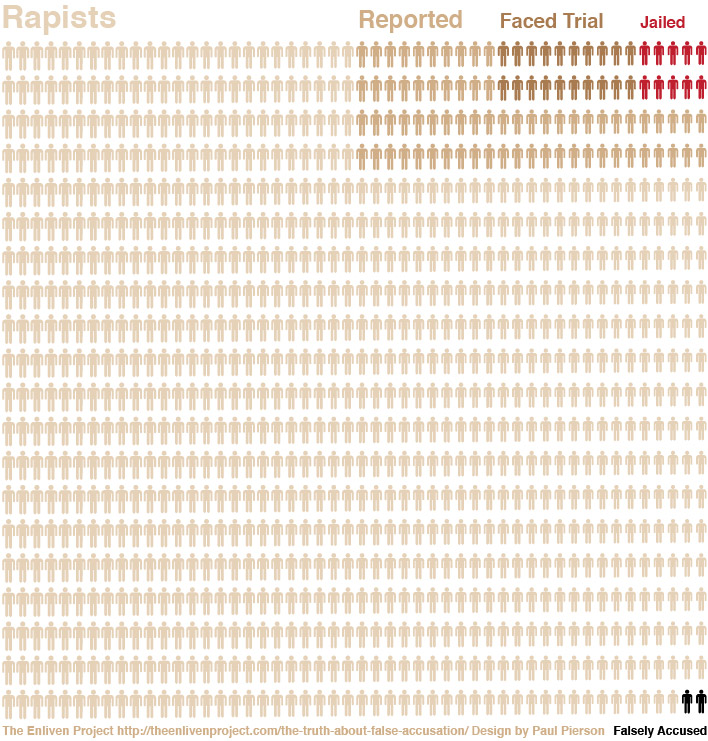Maybe they aren't any more common than false accusations of other crimes... but I'm yet to read about a person's life being ruined by being accused of being a thief or of breaking the speed limit.  It's the nature of rape as a crime that makes a false accusation so damaging, no matter how often it happens.
It's the nature of rape as a crime that makes a false accusation so damaging, no matter how often it happens.
 It's the nature of rape as a crime that makes a false accusation so damaging, no matter how often it happens.
It's the nature of rape as a crime that makes a false accusation so damaging, no matter how often it happens.


Comment